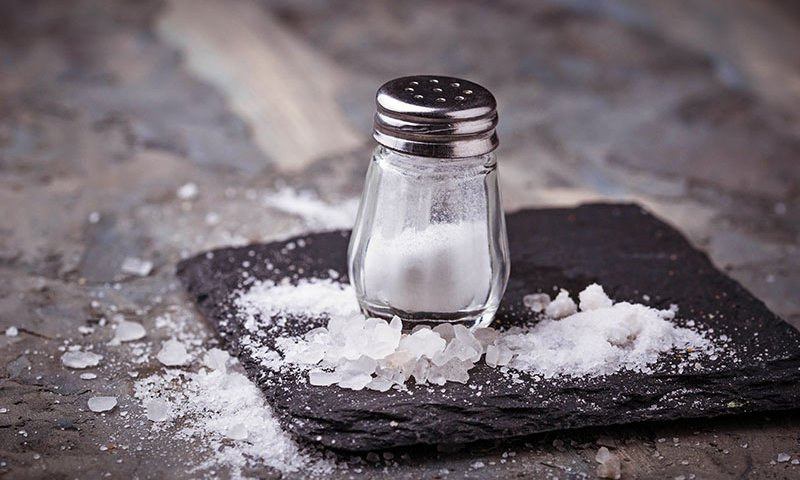Source: Thailand Medical News Jun 28, 2019 6 years, 7 months, 1 week, 3 days, 10 hours, 45 minutes ago
Researchers from John Hopkins Bloomberg School of Public Health have discovered that the incidence of gastrointestinal bloating was higher in individuals that consumed diets high in salt.

Based on analysis of data from the largest clinical trial called DASH-Sodium (Dietary Approaches to Stop Hypertension-Sodium), the team from John Hopkins found that that high sodium intakes increased bloating among trial participants. Results of these were published in the
American Journal of Gastroenterology.
Senior author Noel Mueller, Ph.D., MPH, an assistant professor in the Department of Epidemiology at the Bloomberg School commented in in a phone interview with Thailand Medical News,"Bloating is one of the leading gastrointestinal complaints in the world and can be exacerbated in some people by a high-fiber diet; our results suggest that they might be able to reduce that bloating, without compromising on healthy fiber, by lowering their sodium intake."
Bloating affects up to a third of adults in the world. Its worst for individuals with irritable bowel syndrome, where the incidence rate is about 90%. Bloating features a buildup of excess gas in the gut. The production of gas is due to gas-producing gut bacteria breaking down fiber. There is now evidence that sodium can stimulate bloating.
The researchers found that prior to the trial, 36.7 percent of the participants reported bloating, which is more or less in line with national surveys of bloating prevalence.
The researchers also found that the high-fiber DASH diet increased the risk of bloating by about 42 percent, compared to the low-fiber control diet, and males were more susceptible to this effect, compared to females. But the scientists also determined that sodium was a factor in bloating. When they combined data from the DASH and control diets, and compared the highest level of sodium intake to the lowest, they found that the high-sodium versions of those diets collectively increased the risk of bloating by about 30 percent compared to the low-sodium versions.
The key conclusive finding is that reducing sodium can be an effective way to reduce bloating,and in particular may be able to help people maintain a healthy, high-fiber diet. Salt causes water retention, and that may be one factor. "We hypothesize that sodium intake also alters the gut microbiome in a manner that modifies bacterial sulfide production," Mueller further commented.
Reference:Allison W. Peng et al. Effects of the DASH Diet and Sodium Intake on Bloating, The American Journal of Gastroenterology (2019). DOI: 10.14309/ajg.0000000000000283
